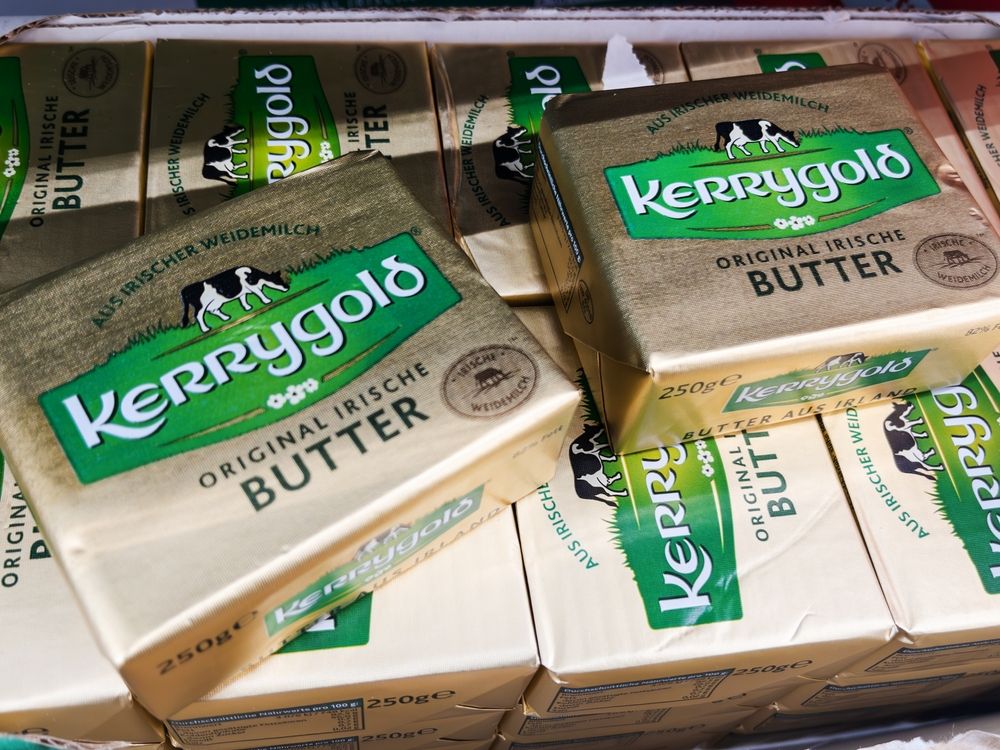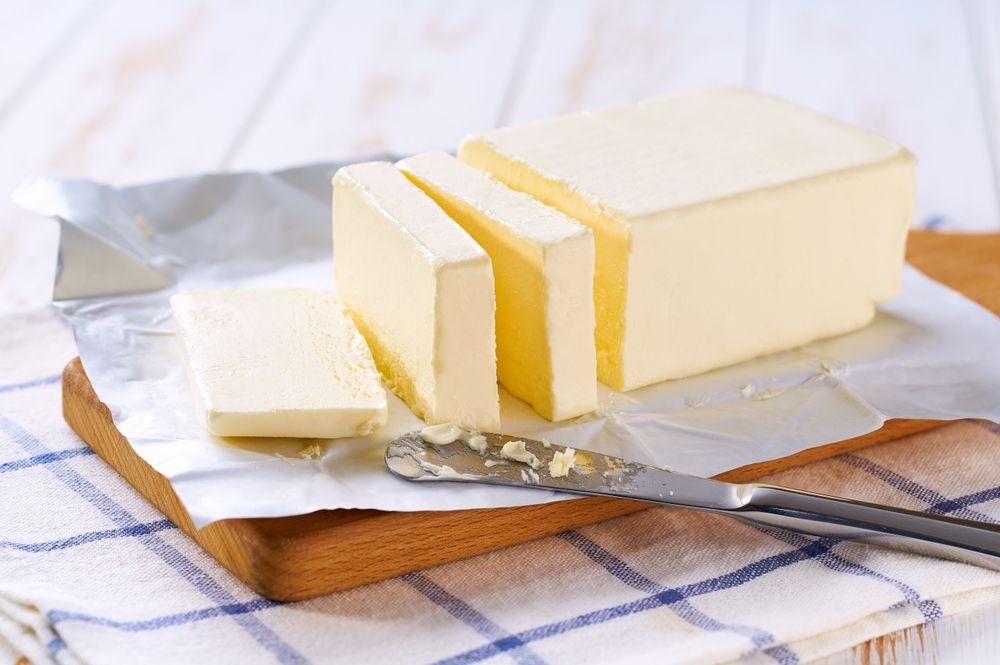
If you're reading this, you might be looking to cut some extra calories with a low-fat butter alternative or seeking a plant-based option due to lactose intolerance or dairy restrictions. However, finding a healthy butter substitute that's truly better for you than traditional dairy butter can be challenging.
Why? For one, the market is vast, offering many options to choose from. You'll find low-fat butters made from olive or canola oil, butter sprays that claim to deliver flavor without the calories, and an array of margarine brands, plant-based butters, and low-calorie options made with ingredients like buttermilk and yogurt.
But are any of these options actually good for you—and more importantly, are they worth buying? With so many butter substitutes on the market, it can be tough to identify the healthiest choices. That’s why we asked leading dietitian nutritionists to share their insights and recommendations for the best butter alternative brands.
Why consider a healthy butter substitute over regular butter?
Butter substitutes are crafted to replicate the taste, texture, and functionality of traditional dairy butter but are made from non-dairy or lactose-free ingredients. For instance, I Can't Believe It's Not Butter is primarily made from water, vegetable oils (like soybean and palm oil), along with emulsifiers and flavorings.
"Diet butter might be a good choice if you're aiming to reduce saturated fats, trans fats, or partially hydrogenated oils," says Amy Gorin, MS, RDN, a plant-forward registered dietitian nutritionist based in the New York City area. Most plant-based butters eliminate or significantly reduce these ingredients, offering a lower-calorie, low-fat option.
"Substitute butters can also be more suitable for specific diets, as they can be dairy-free or vegan, making them ideal for those with allergies or those looking to cut out animal products," adds Erin Palinski-Wade, RD, CDE, author of Belly Fat Diet For Dummies.
However, some products may fall on the "less healthy" side due to certain ingredients. According to Mary Sabat, MS, RDN, LD, "Many margarines and spreads contain harmful oils and inflammatory fats, such as hydrogenated oils, palm oil, and trans fats, which can lead to health issues like heart disease, inflammation, and poor cholesterol levels."
Despite this, many butter substitutes are both safe and nutritious, offering better alternatives for your health.
Benefits of switching to a butter substitute
"Shifting to a more plant-based diet and choosing a spread made from unsaturated, plant-based fats can help improve cholesterol levels, support heart health, and reduce inflammation," says Palinski-Wade.
If you’ve been skeptical of butter substitutes due to their past reputation, it’s worth noting that the trans-fat-laden margarine of the past has been replaced by healthier alternatives. These substitutes now avoid partially hydrogenated oils and include healthier fats, which is a major improvement. In fact, a 2015 study review found that trans fats were linked to an increase in coronary heart disease (CHD) and related deaths.
How to choose a healthy butter substitute
Dietitians offer the following tips for selecting the healthiest butter substitute that won’t be worse for you than regular butter:
- Avoid trans fats: "Diet butters with trans fats can be more harmful than regular butter," says Palinski-Wade. "Just one to two grams of trans fats per day can negatively affect blood lipids." Avoiding trans fats is crucial for heart health.
- Compare with dairy butter: Gorin recommends making sure a one-tablespoon serving of a diet spread contains fewer calories and less fat than traditional butter. Aim for less than 100 calories and seven grams of saturated fat per serving.
- Look for minimal ingredients: "I prefer plant butters with a simple ingredient list, free from artificial preservatives or additives," says Gorin. For instance, I Can't Believe It's Not Butter! uses vinegar as a natural preservative.
- Opt for healthy fats: Sabat advises choosing substitutes made with healthier fats like coconut or olive oil, which provide beneficial fatty acids.
Top butter substitute brands recommended by dietitians:
- Miyoko's Plant Milk Butter
- Livlo Organic Vegan Ghee
- Kite Hill Plant-Based Butter
- Earth Balance Olive Oil Buttery Spread
- Nutiva Coconut Manna
- Carrington Farms Organic Ghee
- I Can't Believe It's Not Butter!
- Olivio Ultimate Spread
- Country Crock Plant Butter with Olive Oil
- WayFare Salted Whipped Butter
- Benecol Buttery Spread
- Smart Balance Buttery Spread
Read on to discover why dietitians recommend these as the best butter substitutes, and don’t miss our guide to the 9 Healthiest Non-Dairy Creamers on Grocery Shelves.
Miyoko's Plant Milk Butter
Nutrition (Per tbsp):
- Calories: 90
- Fat: 10 g (Saturated Fat: 8 g)
- Sodium: 65 mg
- Carbs: 0 g (Fiber: 0 g, Sugar: 0 g)
- Protein: 0 g
According to Mary Sabat, this plant-based butter from Miyoko’s is "a healthy alternative to traditional butter, made with organic coconut oil and cultured cashew milk, offering beneficial fats and nutrients." She adds, "It’s free from harmful additives like hydrogenated oils and supports heart health and metabolism thanks to its rich content of medium-chain triglycerides (MCTs)."
Miyoko’s products are also cultured. "Culturing involves fermenting cashew milk with live cultures, which enhances both flavor and texture while promoting beneficial bacteria," explains Sabat. "This process not only gives it a tangy taste similar to traditional cultured butter but may also improve its digestibility and support gut health."
Livlo Organic Vegan Ghee
Nutrition (Per tbsp):
- Calories: 130
- Fat: 14 g (Saturated Fat: 11 g)
- Sodium: 0 mg
- Carbs: 0 g (Fiber: 0 g, Sugar: 0 g)
- Protein: 0 g
"Livlo Vegan Ghee is a great alternative to traditional butter, especially for those following a vegan diet or looking for healthier options," says Mary Sabat. "Made from a blend of coconut oil, avocado oil, and natural flavors, it replicates the rich, buttery taste and versatility of traditional ghee without any animal products."
In addition to its similar texture and flavor profile to regular ghee, Sabat highlights that Livlo also "features organic and non-GMO ingredients, ensuring a high level of quality."
Kite Hill Plant-Based Butter
Nutrition (Per tbsp):
- Calories: 90
- Fat: 10 g (Saturated Fat: 4 g)
- Sodium: 60 mg
- Carbs: 0 g (Fiber: 0 g, Sugar: 0 g)
- Protein: 0 g
Kite Hill is known for its high-quality, plant-based products, and their Plant-Based Butter is no exception. Made with coconut oil, cultured almond milk, and cocoa butter, this butter alternative offers a creamy texture and rich flavor. It also contains beta-carotene for coloring, a naturally occurring plant pigment that is packed with antioxidants.
Earth Balance Olive Oil Buttery Spread
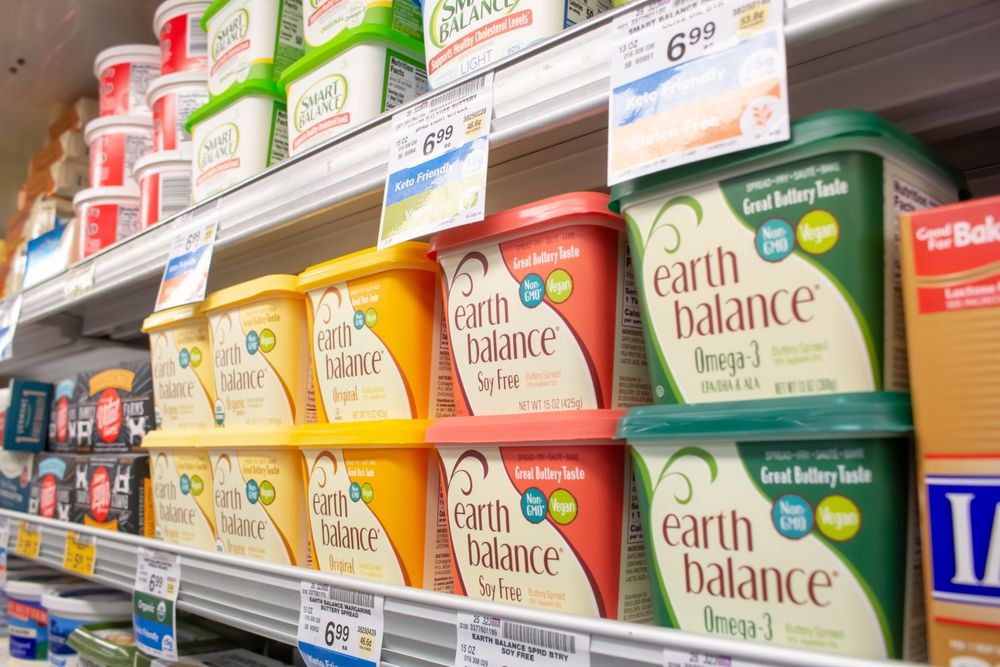
Nutrition (Per tbsp):
- Calories: 80
- Fat: 9 g (Saturated Fat: 2.5 g)
- Sodium: 75 mg
- Carbs: 0 g (Fiber: 0 g, Sugar: 0 g)
- Protein: 0 g
Earth Balance’s Olive Oil Buttery Spread is a healthy, vegan-friendly butter alternative. It contains no trans fats and is rich in omega-3 fatty acids. Additionally, it's lactose-free, soy-free, and non-GMO, making it suitable for a wide range of dietary preferences and needs.
Nutiva Coconut Manna
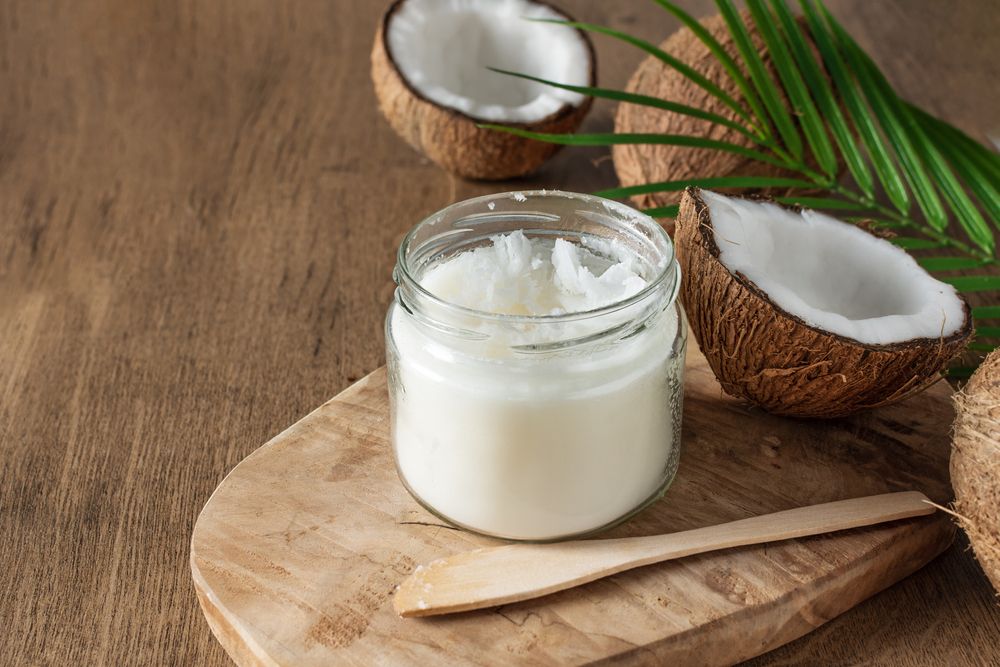
Nutrition (Per 2 tbsp):
- Calories: 200
- Fat: 18 g (Saturated Fat: 17 g)
- Sodium: 0 mg
- Carbs: 7 g (Fiber: 5 g, Sugar: 2 g)
- Protein: 2 g
Nutiva's spread is made with just one simple ingredient: pureed coconut. That's it!
"This plant-based spread is free of sodium and cholesterol, making it a great alternative to butter and cream cheese," says Erin Palinski-Wade.
Carrington Farms Organic Ghee
Nutrition (Per tbsp):
- Calories: 130
- Fat: 14 g (Saturated Fat: 10 g)
- Sodium: 0 mg
- Carbs: 0 g (Fiber: 0 g, Sugar: 0 g)
- Protein: 0 g
For a healthy ghee option, try this organic product from Carrington Farms.
But what is ghee exactly? It’s butter that undergoes a clarification process to remove all water, resulting in a higher smoke point for cooking. This process also eliminates many dairy proteins, such as casein, making ghee easier to tolerate for those with lactose sensitivity. It’s also beneficial for digestive health.
"Ghee contains butyric acid, a fatty acid that may help reduce inflammation and support digestive health," explains Erin Palinski-Wade.
I Can't Believe It's Not Butter!
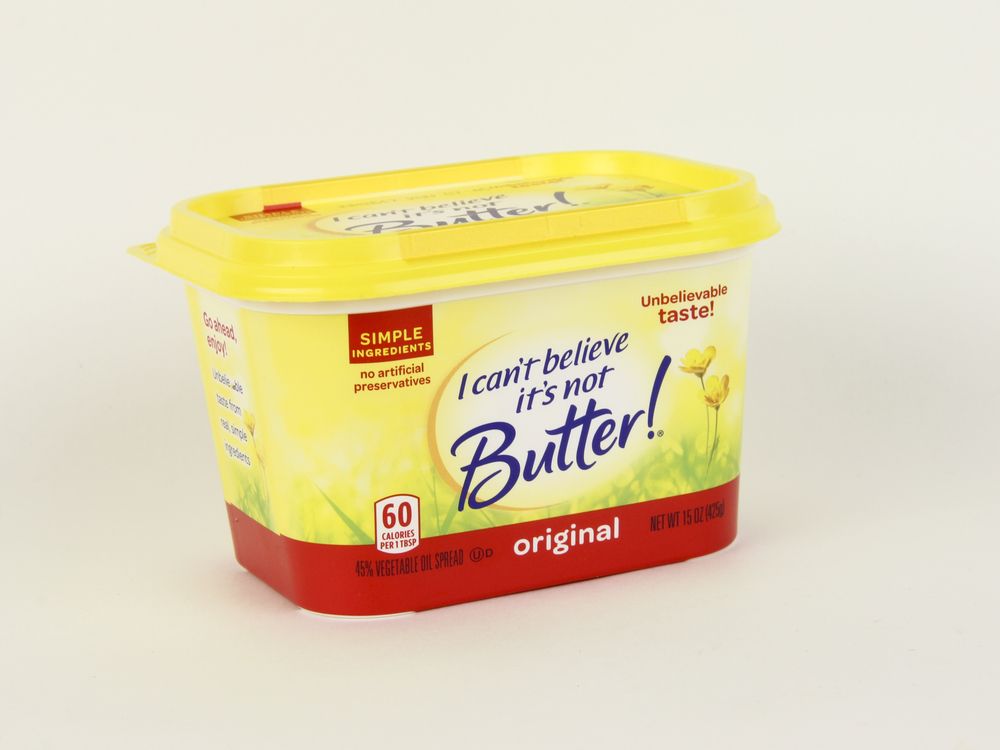
Nutrition (Per tbsp):
- Calories: 60
- Fat: 6 g (Saturated Fat: 2 g)
- Sodium: 90 mg
- Carbs: 0 g (Fiber: 0 g, Sugar: 0 g)
- Protein: 0 g
This brand is likely the most recognized for butter substitutes, and Amy Gorin highlights it as an excellent plant-based spread for several reasons. It's American Heart Association Heart-Check certified and contains 70% less saturated fat and 40% fewer calories than traditional dairy butter.
It may also have a smaller environmental footprint than dairy butter: "All the palm oil used is sustainably sourced," says Gorin, "and its production generates 70% less carbon emissions compared to dairy butter."
Olivio Ultimate Spread
Nutrition (Per tbsp):
- Calories: 80
- Fat: 8 g (Saturated Fat: 1.5 g)
- Sodium: 95 mg
- Carbs: 0 g (Fiber: 0 g, Sugar: 0 g)
- Protein: 0 g
Olivio offers a range of alternative spreads, but the Ultimate Spread stands out. This olive oil-based option is vegan, non-GMO, and free from preservatives. It also provides a healthy dose of ALA omega-3s, a plant-based fatty acid that may support heart health, making it an excellent replacement for dairy butter.
Country Crock Plant Butter with Olive Oil
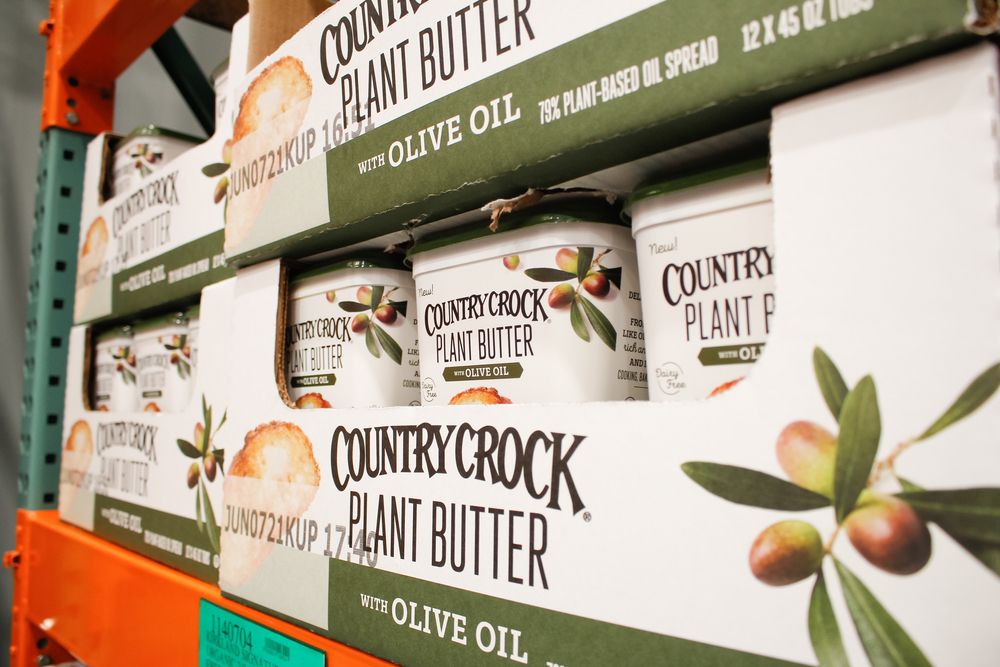
Nutrition (Per tbsp):
- Calories: 100
- Fat: 11 g (Saturated Fat: 4 g)
- Sodium: 105 mg
- Carbs: 0 g (Fiber: 0 g, Sugar: 0 g)
- Protein: 0 g
Palinski-Wade recommends this plant-based spread made from olive oil as a healthier alternative to traditional butter, both for spreading and in cooking or baking, as it contains less saturated fat. Additionally, Country Crock notes that the production of their plant butter generates less than half the greenhouse gas emissions compared to dairy butter production, making it a more environmentally friendly choice.
WayFare Salted Whipped Butter
Nutrition (Per tbsp):
- Calories: 60
- Fat: 7 g (Saturated Fat: 5 g)
- Sodium: 60 mg
- Carbs: 0 g (Fiber: 0 g, Sugar: 0 g)
- Protein: 0 g
You might be surprised to find pureed lima beans in this vegan, gluten-free, and soy-free plant-based butter, but according to Palinski-Wade, the legumes provide a creamy texture while keeping fat and calorie content low. This innovative butter alternative uses blended lima beans to create a rich consistency with fewer calories and fat.
Benecol Buttery Spread
Nutrition (Per tbsp):
- Calories: 70
- Fat: 8 g (Saturated Fat: 1 g)
- Sodium: 105 mg
- Carbs: 0 g (Fiber: 0 g, Sugar: 0 g)
- Protein: 0 g
Looking for a butter substitute that enhances your nutrition profile? Lainey Younkin, MS, RD, dietitian at Lainey Younkin Nutrition, recommends Benecol. This spread contains plant stanols, a compound proven to reduce total and LDL cholesterol, but challenging to find in a typical diet.
"While plant stanols occur naturally in foods, you'd need to eat 12 pounds of broccoli, 29 pounds of carrots, or 60 pounds of tomatoes daily to get the recommended two grams per day for cholesterol reduction," Younkin explains.
Or you could simply use Benecol, since four tablespoons provide the recommended two grams of plant stanols. You can use it just like regular butter, as it's a one-to-one swap, Younkin adds.
Smart Balance Buttery Spread
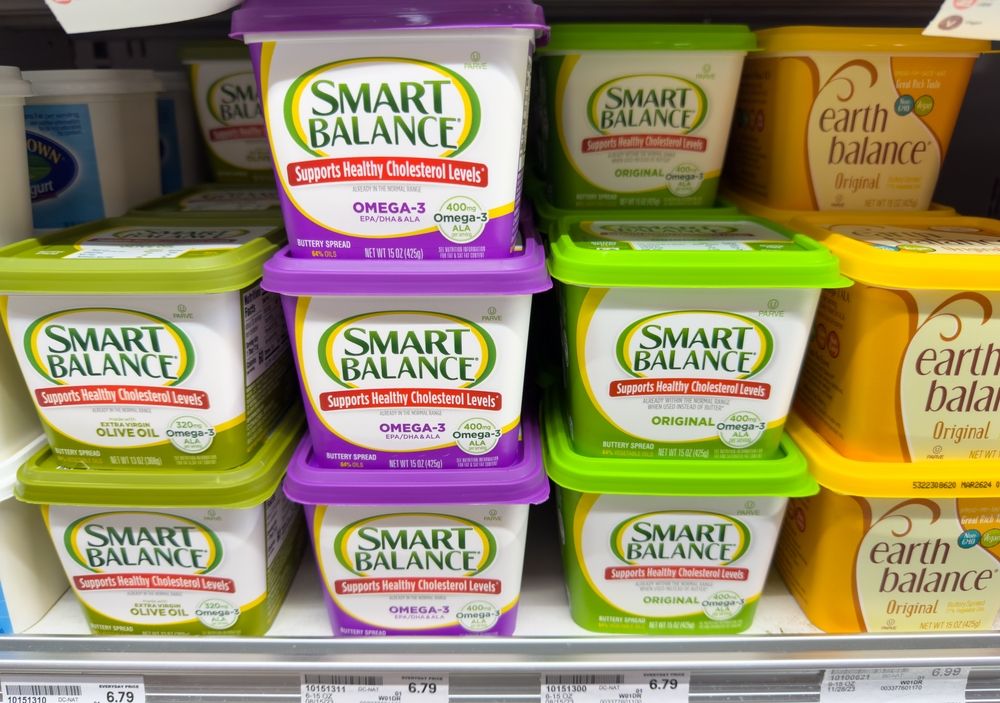
Nutrition (Per tbsp):
- Calories: 80
- Fat: 9 g (Saturated Fat: 2.5 g)
- Sodium: 90 mg
- Carbs: 0 g (Fiber: 0 g, Sugar: 0 g)
- Protein: 0 g
This spread is free from dairy, gluten, partially hydrogenated oils, and trans fats. But don't be fooled into thinking it's just an empty tub of butter substitute. Smart Balance earns its spot as a healthy alternative because it's enriched with heart-healthy oils, omega-3s, and vitamins. Not only does it taste great, but it's also packed with nutrients that are good for your heart.

